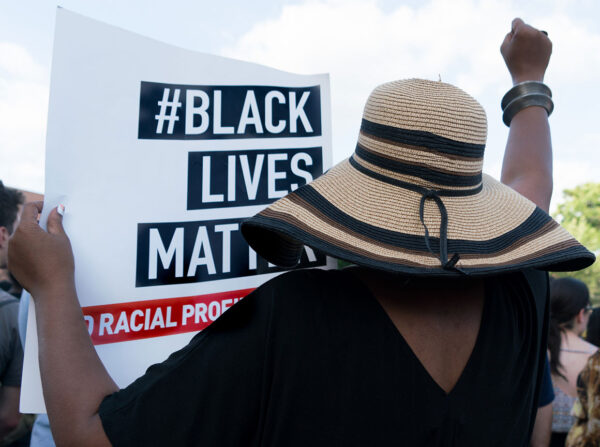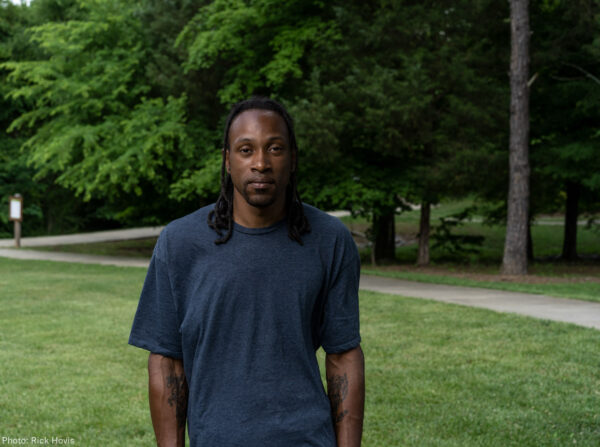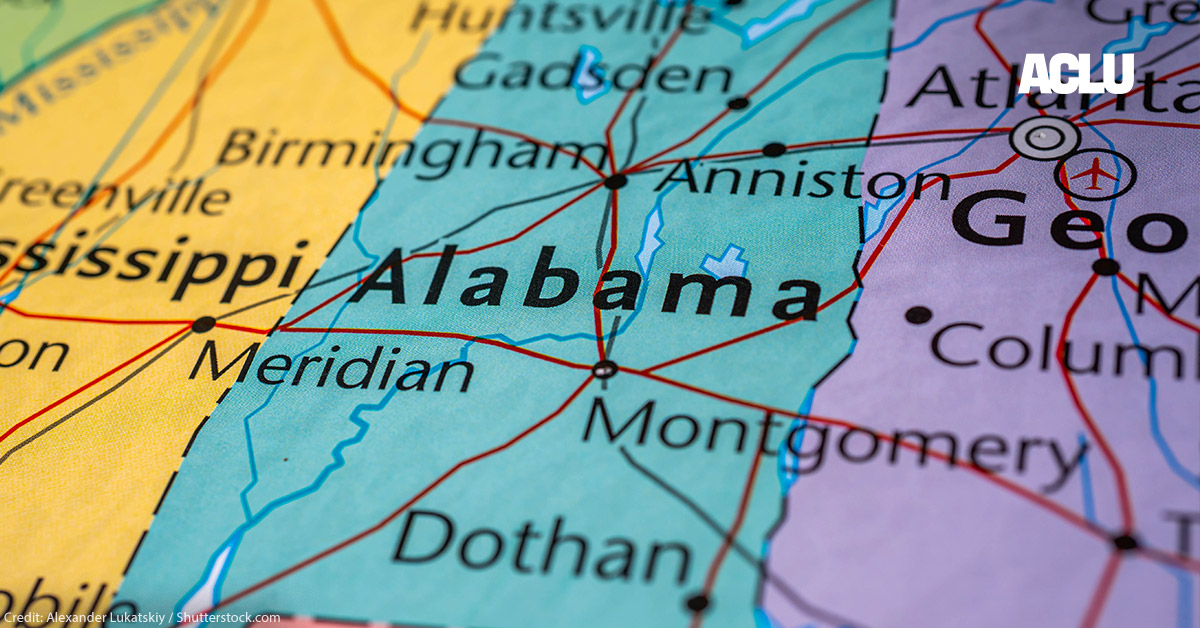Racial Justice
Allen v. Milligan
Whether Alabama’s congressional districts violate Section 2 of the Voting Rights Act because they discriminate against Black voters. We succeeded in winning a new map for 2024 elections which, for the first time, has two congressional district that provide Black voters a fair opportunity to elect candidates of their choosing despite multiple attempts by Alabama to stop us at the Supreme Court. Despite this win, Alabama is still defending its discriminatory map, and a trial was held in February 2025 to determine the map for the rest of the decade.
In May 2025, a federal court ruled that Alabama's 2023 congressional map both violates Section 2 of the Voting Rights Act and was enacted by the Alabama Legislature with racially discriminatory intent.
Status: Ongoing
View Case
Learn ļž–” ”∆Ķ Racial Justice
Featured
Arizona
Oct 2023

Racial Justice
Criminal Law Reform
Fund for Empowerment v. Phoenix, City of
Fund for Empowerment is a challenge to the City of Phoenix’s practice of conducting sweeps of encampments without notice, issuing citations to unsheltered people for camping and sleeping on public property when they have no place else to go, and confiscating and destroying their property without notice or process.
U.S. Supreme Court
Sep 2023

Racial Justice
Women's Rights
United States v. Rahimi
Whether 18 U.S.C. § 922(g)(8), which prohibits the possession of firearms by persons subject to domestic-violence restraining orders, violates the Second Amendment on its face.
U.S. Supreme Court
Sep 2023

Racial Justice
Muldrow v. City of St. Louis
Do employees claiming that they have been denied a transfer because of their race have to demonstrate in addition that the transfer caused a significant material disadvantage?
Court Case
Jun 2020

Racial Justice
Defy Ventures, Inc. v. Small Business Administration
Suing the Trump administration to lift its unlawful exclusion of businesses owned by people with criminal records from being eligible for Paycheck Protection Act funds
California
Mar 2019

Racial Justice
MediaJustice, et al. v. Federal Bureau of Investigation, et al.
On March 21, 2019, the ļž–” ”∆Ķ and MediaJustice, formerly known as "Center for Media Justice," filed a Freedom of Information Act lawsuit seeking records about FBI targeting of Black activists. The lawsuit enforces the ļž–” ”∆Ķ and MediaJustice‚Äôs right to information about a 2017 FBI Intelligence Assessment that asserts, without evidence, that a group of so-called ‚ÄúBlack Identity Extremists‚ÄĚ poses a threat of domestic terrorism. The Intelligence Assessment was widely disseminated to law enforcement agencies nationwide, raising public concern about government surveillance of Black people and Black-led organizations based on anti-Black stereotypes and First Amendment protected activities.
Court Case
Aug 2015

Racial Justice
Disability Rights
S.R. v. Kenton County Sheriff's Office
A deputy sheriff shackled two elementary school children who have disabilities, causing them pain and trauma, according to a federal lawsuit filed today by the ļž–” ”∆Ķ, the Children's Law Center, and Dinsmore & Shohl.
All Cases
129 Racial Justice Cases

U.S. Supreme Court
Apr 2022
Racial Justice
+2 Issues
Cummings v. Premier Rehab Keller, P.L.L.C.
Whether civil rights statutes that prohibit federal financial recipients from discriminating on the basis of disability, race, and sex allow plaintiffs to be compensated for emotional distress injuries where they show that they were victims of discrimination.
Explore case
U.S. Supreme Court
Apr 2022

Racial Justice
+2 Issues
Cummings v. Premier Rehab Keller, P.L.L.C.
Whether civil rights statutes that prohibit federal financial recipients from discriminating on the basis of disability, race, and sex allow plaintiffs to be compensated for emotional distress injuries where they show that they were victims of discrimination.

U.S. Supreme Court
Apr 2022
Racial Justice
Voting Rights
United States v. Vaello-Madero
Whether excluding Puerto Rico residents from the Supplemental Security Income (SSI) program violates the equal protection component of the 5th Amendment’s Due Process Clause.
Explore case
U.S. Supreme Court
Apr 2022

Racial Justice
Voting Rights
United States v. Vaello-Madero
Whether excluding Puerto Rico residents from the Supplemental Security Income (SSI) program violates the equal protection component of the 5th Amendment’s Due Process Clause.

North Carolina
Mar 2022
Racial Justice
Criminal Law Reform
Johnson v. Jessup
The ļž–” ”∆Ķ (ļž–” ”∆Ķ), ļž–” ”∆Ķ of North Carolina, Southern Poverty Law Center (SPLC), and Southern Coalition for Social Justice are suing the North Carolina Division of Motor Vehicles (DMV) for indefinitely revoking driver‚Äôs licenses of people who cannot afford to pay traffic tickets. North Carolina‚Äôs wealth-based license revocation system impacts hundreds of thousands of people each year, preventing them from driving legally to support themselves and their families. This system funnels people unable to pay traffic tickets, particularly people of color, into cycles of debt, traffic violations, and poverty in violation of the Fourteenth Amendment‚Äôs promises of due process and equal protection under the law.
Explore case
North Carolina
Mar 2022

Racial Justice
Criminal Law Reform
Johnson v. Jessup
The ļž–” ”∆Ķ (ļž–” ”∆Ķ), ļž–” ”∆Ķ of North Carolina, Southern Poverty Law Center (SPLC), and Southern Coalition for Social Justice are suing the North Carolina Division of Motor Vehicles (DMV) for indefinitely revoking driver‚Äôs licenses of people who cannot afford to pay traffic tickets. North Carolina‚Äôs wealth-based license revocation system impacts hundreds of thousands of people each year, preventing them from driving legally to support themselves and their families. This system funnels people unable to pay traffic tickets, particularly people of color, into cycles of debt, traffic violations, and poverty in violation of the Fourteenth Amendment‚Äôs promises of due process and equal protection under the law.

U.S. Supreme Court
Jan 2022
Racial Justice
Criminal Law Reform
Concepcion v. United States
Whether a district court must or may consider intervening legal and factual developments when deciding if it should ‚Äúimpose a reduced sentence‚ÄĚ on an individual under Section 404(b) of the First Step Act of 2018, which was enacted to ameliorate the unjust sentences imposed by overly harsh treatment of crack cocaine offenses under prior law.
Explore case
U.S. Supreme Court
Jan 2022

Racial Justice
Criminal Law Reform
Concepcion v. United States
Whether a district court must or may consider intervening legal and factual developments when deciding if it should ‚Äúimpose a reduced sentence‚ÄĚ on an individual under Section 404(b) of the First Step Act of 2018, which was enacted to ameliorate the unjust sentences imposed by overly harsh treatment of crack cocaine offenses under prior law.

U.S. Supreme Court
Oct 2021
Racial Justice
Free Speech
Center for Investigative Reporting v. SEPTA
In this case, the U.S. Court of Appeals for the Third Circuit held that the Philadelphia metropolitan transit system‚Äôs ban on ‚Äúpolitical‚ÄĚ and public issue advertisements violated the First Amendment because the policy could not be applied in a logical, consistent manner.
Explore case
U.S. Supreme Court
Oct 2021

Racial Justice
Free Speech
Center for Investigative Reporting v. SEPTA
In this case, the U.S. Court of Appeals for the Third Circuit held that the Philadelphia metropolitan transit system‚Äôs ban on ‚Äúpolitical‚ÄĚ and public issue advertisements violated the First Amendment because the policy could not be applied in a logical, consistent manner.
